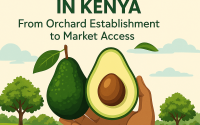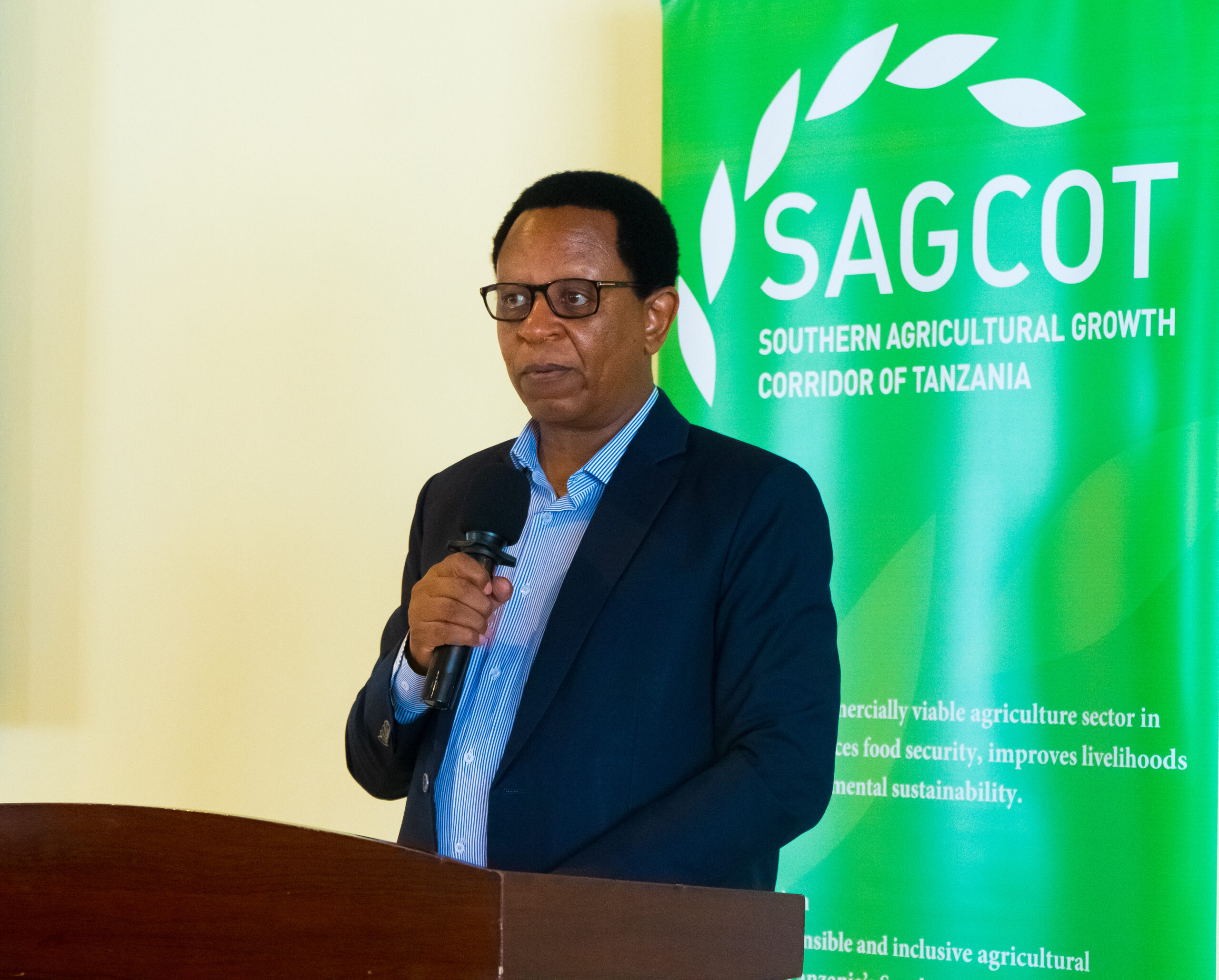Access to Clean Water and Sanitation in Tanzania: Multifaceted Approach to a Complex Problem
*How TAMFI and Water.org are Democratizing Access to Clean Water and Sanitation in Tanzania
Kilimokwanza.org team
In the heart of Tanzania, where the equatorial sun hangs heavy in the sky and the path to the nearest water source is often fraught with difficulty, a revolution is quietly underway. Access to clean water and basic sanitation has long been a mirage for many Tanzanians, with arduous daily treks to fetch water that is frequently unsafe for consumption. However, a transformative collaboration is dramatically changing this narrative, ensuring that clean water and sanitation become not just a privilege but a fundamental human right.
The Tanzania Association of Microfinance Institutions (TAMFI), in partnership with global non-profit Water.org, is implementing Water Credit Adoption Program (WCAD). According to Winnie Terry, CEO of TAMFI, this program aims to provide affordable financing tailored for water and sanitation solutions. “Financial inclusion is about creating an ecosystem where access to clean water and sanitation isn’t a privilege but a basic human right,” Terry emphasizes.
What sets WCAD apart is its comprehensive strategy. Beyond mere project financing, the program also offers capacity-building to participating Tanzanian financial institutions. This approach allows them to create and offer specialized lending products targeting water and sanitation projects, thus building a sustainable ecosystem.
Regions across Tanzania—including Mwanza, Kilimanjaro, Pwani, Sumbawanga in Rukwa, Mufindi in Iringa, Arusha, Zanzibar, and Dar es Salaam—are already reaping the benefits. The loans primarily finance water pipeline connections from government systems to residences and drilling deep water wells close to homes.
“The tremendous progress we’ve made underscores the transformative power of cross-sectoral collaborations among the public sector, private enterprises, and nonprofit organizations,” notes Terry.
Pendo Massawe, a representative of Water.org, echoes this sentiment, highlighting the importance of investment in clean water and sanitation. “Every dollar invested in these areas leads to a fourfold return: sustainability, reduced healthcare costs, enhanced productivity, and economic growth,” Massawe stresses.
Financial institutions are heeding the call to action. For example, MMCL Financial Limited has uplifted 103 economically and socially households through lending. Meanwhile, the Tanzania Microfinance Bank has given loans totaling 90 million shillings to 165 households.
Yet, the true impact of this collaboration transcends the numbers. Imagine a Tanzanian mother who no longer has to sacrifice hours of her day to fetch unsafe water, now having the time to engage in income-generating activities. Thanks to the newly-installed sanitation facilities, picture the father who doesn’t have to worry about his children falling ill from waterborne diseases. For thousands of Tanzanians, the WCAD initiative is not just about water and sanitation; it’s a newfound freedom and a substantial improvement in their quality of life.
While the humanitarian gains are significant, the economic implications of WCAD’s work cannot be overlooked. It’s a symbiotic relationship; as Massawe points out, every dollar invested has multiplicative economic benefits. Improved sanitation reduces healthcare costs related to waterborne diseases like cholera and dysentery. Access to clean water near homes boosts productivity, as people no longer have to spend hours fetching water. This enhanced productivity, in turn, propels economic growth.
According to the World Bank, only 61% of Tanzanian households have access to a basic water supply, 32% to basic sanitation, and 48% to basic hygiene. While these numbers portray a grim reality, the work of TAMFI and Water.org provides a glimmer of hope.
The WCAD initiative is much more than a drop in the bucket; it’s a cascading waterfall of change. As Winnie Terry aptly puts it, “It’s an intelligent investment. Financial institutions have the opportunity to change lives.” In a world where 1 in 3 people globally do not have access to safe drinking water, according to the World Health Organization, this Tanzanian model could serve as a blueprint for countries grappling with similar challenges. With every well drilled and every pipeline laid, the collaboration between TAMFI and Water.org doesn’t just bring water; it brings life, freedom, and a brighter future for Tanzania.
The dream of water for all is slowly but surely turning into a reality, one loan at a time. It’s a masterclass in how collaboration and financial innovation can solve some of humanity’s most pressing problems. And for Tanzanians, it signifies the dawn of a new era—where clean water and sanitation are not just words in policy documents but a lived, everyday reality.
As the partnership between TAMFI and Water.org continues to evolve, it also brings into focus the scalability of the WCAD model. With thousands of Tanzanians already experiencing a drastic shift in their daily lives, the question now is: How can this success be replicated within Tanzania and other regions facing similar challenges?
According to Winnie Terry, the focus now should be on continuous improvement and scalability. “We’ve cracked the code here in Tanzania, to some extent,” she says. “Now we need to refine our approach, make data-driven improvements, and consider how this model can be scaled or adapted to other contexts.”
In an era where data is the new gold, the use of analytics and technology could play a pivotal role in scaling up the initiative. Monitoring the impact of the loans in real-time can yield insights into what works and what doesn’t. It can also help track the actual improvements in community health and economic productivity attributable to the easier access to clean water and sanitation facilities.
Moreover, financial institutions involved in the WCAD initiative could leverage technologies like mobile banking to streamline the loan application and repayment processes, thus extending their reach into even more remote regions.
While the WCAD initiative is a testament to the impact of local solutions, it also opens doors for global partnerships. Engaging with international financial bodies, philanthropic organizations, and policy-making institutions can bring additional resources and expertise into the mix.
Participation from the global community can also aid in the establishment of best practices for water financing, potentially standardizing a model that could be implemented in other developing nations.
As the WCAD initiative continues to break new ground, perhaps its most significant achievement is in challenging established norms and expectations. For too long, the lack of access to clean water and sanitation has been accepted as an unfortunate but immutable fact of life for millions.
Yet, what TAMFI and Water.org have achieved is to reframe the narrative around what is possible. In doing so, they have given people not just clean water, but the hope that comes from a better, healthier life.
The path to universal access to clean water and sanitation is fraught with complexities, but as the TAMFI-Water.org collaboration shows, it is far from insurmountable. Each new well drilled, each pipeline connected, and each loan disbursed brings us one step closer to a world where clean water and sanitation are universal rights, not privileges.
“It’s a marathon, not a sprint,” says Winnie Terry, summarizing the journey ahead. “But we’ve shown that when people come together with a common purpose and a shared vision, even the most entrenched challenges can be overcome.”
In a world still grappling with inequity, poverty, and the ravages of climate change, the work of TAMFI and Water.org serves as a beacon of what is possible when innovation, collaboration, and a commitment to human rights converge. It’s more than a successful program; it’s a paradigm shift in how we think about, and address, one of the most fundamental necessities of life.
As the WCAD initiative marches on, its ripples are being felt far beyond the Tanzanian landscape, offering a blueprint for action and instilling a newfound sense of possibility for countless people around the world. And in that sense, the dream of water for all has never been closer to becoming a reality.


